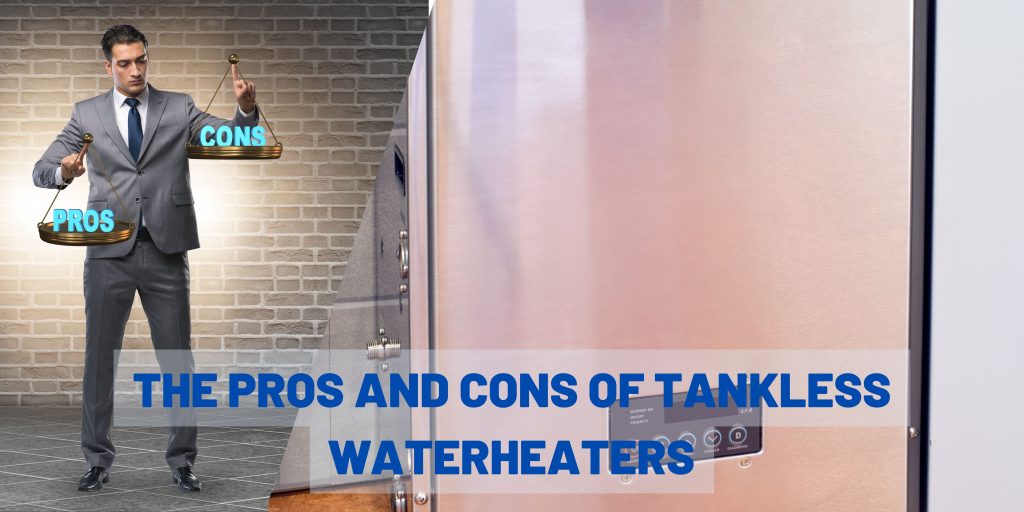- Serving Our NJ Neighbors 24/7 (888) 333-2422
Tankless Water Heaters’ Advantages And Disadvantages

You probably don’t think much about your water heater most of the time. Out of sight, out of mind applies to most household equipment, so long as they are functioning properly. Nevertheless, if your present water heater is on its last legs or you’re searching for a more energy-efficient water heating option, it might be time to take a closer look at an on-demand, or tankless, water heater.
Let’s start by asking what exactly is a tankless water heater is. Simply put, it’s a heater that takes the place of the tank-style water heater you might be used to seeing in your basement or furnace room, or at your parents’ house. Tankless water heaters only heat water as it is required, not before it is needed and then stored in a tank.
Tankless water heater benefits:
Going tankless has many benefits, including the following:
Durable: Because of their tough design and materials, they frequently have a lengthy lifespan, and their running expenses are frequently quite cheap. Also, there is less of a long-term environmental impact because most models contain replacement parts.
Continuous supply: Tankless water heaters can provide continuous hot water as long as there is fuel or energy to heat it. While storage tanks are constrained by the size of the tank, as you are soberly reminded in the early morning after all your kids have showered before you do, tankless water heaters can provide unlimited hot water.
Energy conservation: Because water loses heat as soon as it is stored in a tank, a standard water heater must operate continuously to keep the water warm and ready to use. Tankless is more energy-efficient since water is heated rapidly and only when it is required. As a matter of fact, our condensing models begin at an energy factor of 0.94, which indicates that 94% of the fuel is being used to heat the water and just 6% is being lost as waste. Your energy bill can be reduced with a tankless water heater.
Space-saving: Because to the high cost of real estate, a lot of people are moving into smaller houses. With fewer spaces come less convenience, so a 40- or 60-gallon storage tank that is 5 feet high and 2 feet wide isn’t exactly ideal. In contrast, a tankless water heater hangs up and out of the way on a wall, freeing up more useable area on the ground. Just think of the additional space that would be available in your cottage, bathroom, or basement.
Less negative environmental impact: Unlike conventional water heater tanks, which frequently need to be completely replaced, tankless water heaters may be repaired using interchangeable components and hence consume less non-renewable fuel.
Tankless water heater disadvantages:
Even if the benefits vastly exceed the drawbacks, there are a few things to consider:
Out-of-pocket expenses:
Installing a tankless water heater may need some initial out-of-pocket expenses, both for the water heater itself and for the installation. Also, installing a tankless water heater sometimes involves installing new gas lines and venting. Nevertheless, the increased expenditures start to pay for themselves after installation because to the energy savings from not having to regularly reheat water in a tank.
Water output:
While a 60-gallon tank full of hot water is undoubtedly wasteful, it is also clearly practical, especially when your family demands include showers, laundry, and a dishwasher—oftentimes all at once. Since the output of a tankless water heater is more constrained and its efficiency is higher, it can be wise to install more than one of them in your house. Reliance provides a range of models to suit your demands and way of life, as well as a recirculating unit that can help you use less water.





